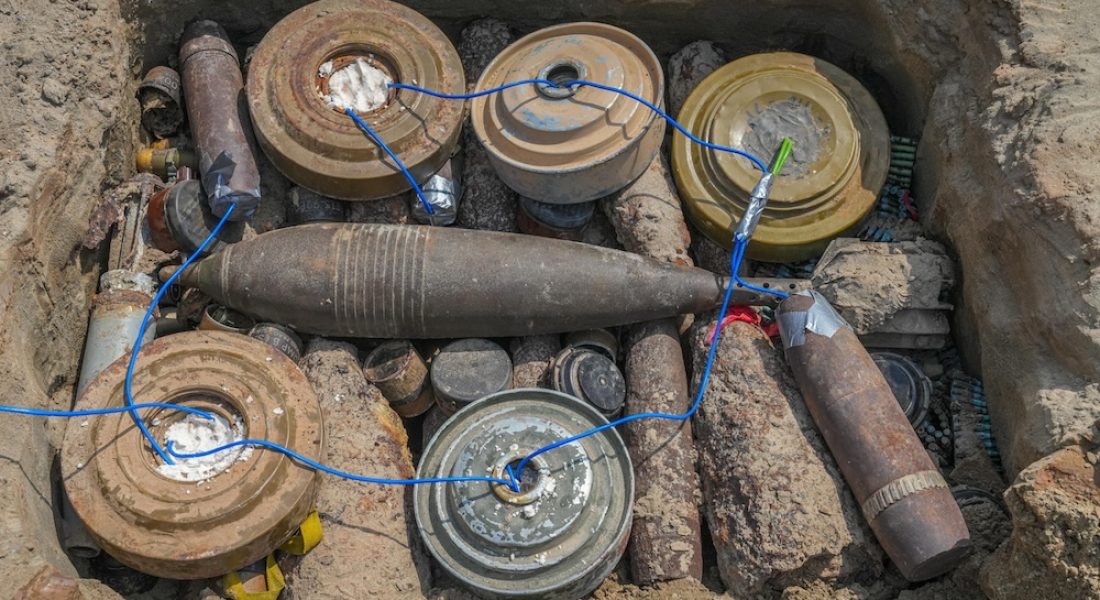
Barran Press
A new report urges the Biden administration to adopt a "new approach" to defeat the Houthi group, designated as a terrorist organization, including addressing their Iranian backers.
The report, published by the New York Post and translated by Bran Press, argues that the current Biden administration's plan has "failed to protect freedom of navigation and make international waters safer."
"Intercepting drones and targeting radar sites won't end the Houthi threat, let alone defeat them," the report states. "To do that, the U.S. and its allies must strike Houthi launch sites and crews, weapons storage facilities, guidance systems, command and control centers - and they must stop the flow of weapons and munitions coming from Iran."
The report also emphasizes the need for the U.S. administration to adopt a "kinetic targeting" tactic against Houthi leadership.
A 4-Phase Campaign
The report quotes retired U.S. Navy Admiral James Stavridis, who advocates for an "offensive campaign" consisting of four phases:
- Intelligence Gathering: Gathering comprehensive intelligence on Houthi operations.
- Command and Control Strikes: Targeting Houthi leadership and communication centers.
- Infrastructure Strikes: Destroying Houthi weapons storage facilities and launch sites.
- Cutting Iranian Supply Chain: Disrupting the flow of weapons and support from Iran to the Houthis.
"Biden needs to listen," Stavridis added. "It's not enough for Biden to play defense... To defeat the enemy, he has to go on the offense."
The report highlights the "keyword" in Stavridis' plan as "campaign" - a series of interconnected major operations designed to achieve strategic and operational objectives within a specific time and place. This is something, the report argues, that the Biden administration has failed to grasp, let alone implement.
Criticism from Within
Senator Marco Rubio, Vice Chair of the Senate Intelligence Committee, has criticized Biden's approach, stating that the president has "only approved strikes on empty warehouses and drone launch sites, which are basically empty pieces of land."
In an article published on the National Review website and translated by Bran Press, Rubio points out that the White House "refuses to arm allies who are eager to fight the Houthis on our behalf, preferring to deploy U.S. naval ships in the Red Sea, even though those ships are needed elsewhere."
"President Biden says his policies are designed to avoid 'escalating' the conflict," Rubio adds. "But they are having the opposite effect. Until Biden corrects course and imposes a heavy cost on the Houthis, we should expect prices to continue to rise and the lives of more Americans to be put at risk."
Escalating Tensions
Since November 2023, the Houthi group has continued its attacks with missiles and drones against commercial ships in the Red Sea, the Arabian Sea, and the Gulf of Aden.
These attacks have led to increased maritime insurance costs and prompted many international shipping companies to opt for the much longer route around the southern tip of Africa.
In response to the Houthi threat, the United States formed a multinational coalition in December 2023 to deter attacks and protect maritime navigation. U.S. forces have also conducted strikes against Houthi military targets on occasion.
Since January 12th, the U.S. and UK have conducted approximately 560 airstrikes against the Houthis, resulting in the deaths of 58 and injuries to 86, according to the group's own admission.
The internationally recognized Yemeni government argues that Western airstrikes are ineffective in neutralizing the Houthi threat to navigation, and that the most effective solution is to support Yemeni forces in retaking Hodeidah, its ports, and other areas under Houthi control.
Despite continued Houthi attacks, only three out of 162 ships claimed to have been targeted since November have reported serious incidents or damage.





